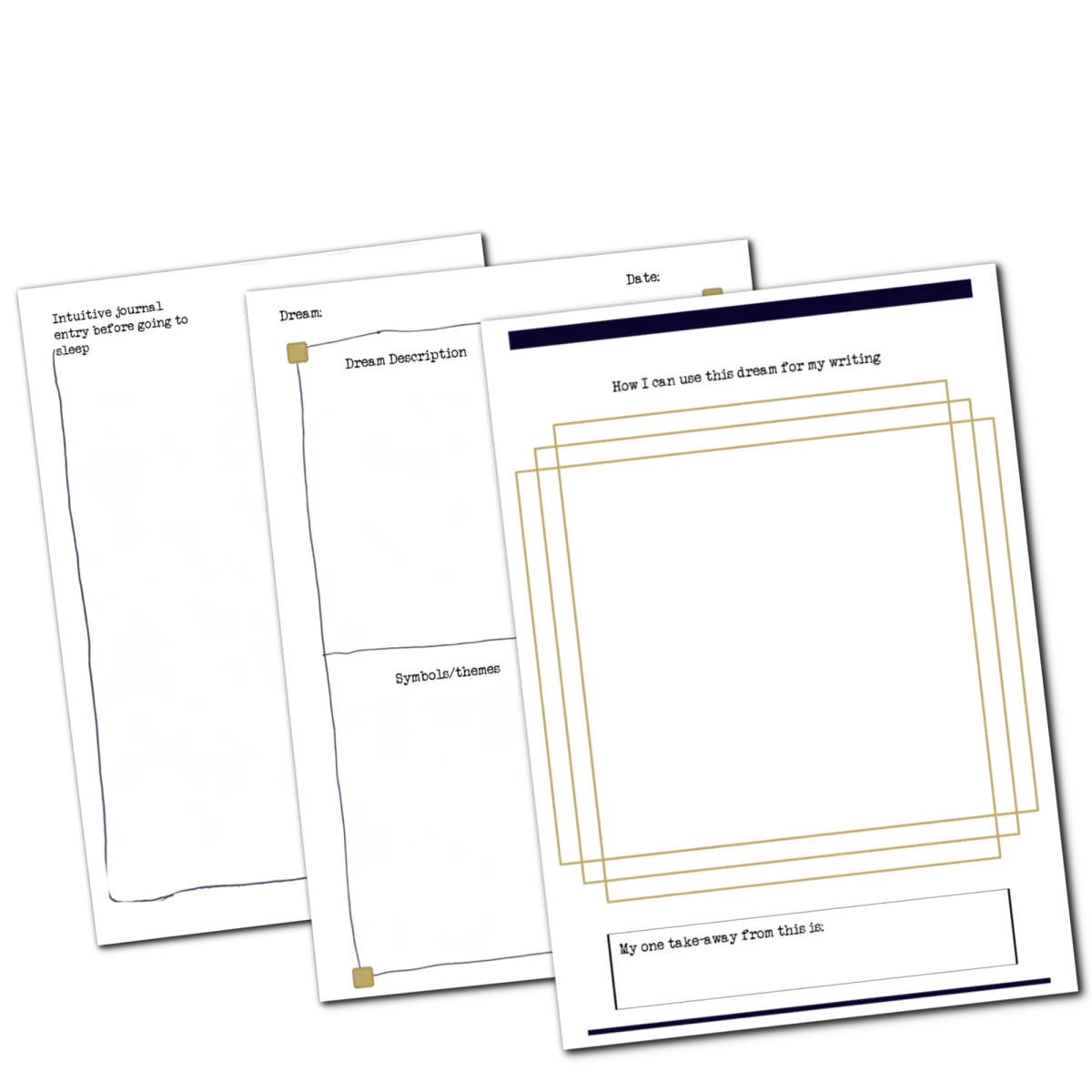Articles
Welcome to the library - I hope you find something you like
Read

From Laundry Pile to Creative Renewal: Finding Inspiration in Small Moments
From Laundry Pile to Creative Renewal: Finding Inspiration in Small Moments

My daughter is asking me why all the laundry is scattered on the floor while at the same time wanting me to get her some snacks. I go into the kitchen to grab an apple for her. She takes the apple and runs into the living room. I barely notice that she yells “Thanks” because my mind is busy trying to schedule vacation time and playdates with all the other appointments this month.
This is a good day – a typical day. But I have yet to do some writing.
Renewal in Five Minutes
Tucking the clothing into the washing machine, I get an inner picture of my grandmother standing by a small table and chair outside. I have never actually seen this set-up, but she once told me, that each morning she would have her morning coffee at this table. All of her seven children knew it was mom-time and only rarely would they tease her with taking the chair.
Perhaps my creative spark is not extinguished – it is just waiting for a little renewal. My grandmother found that renewal each morning at her table.

Reframing Renewal
Renewal is not a weekend spa retreat; it is part of daily life. Writing is not a frivolous hobby; it is essential self-care. It is okay to carve out time for writing, even if it is just a few stolen moments.
But the constant mental load of everyday life can be a creativity killer. We have all been there:
The "I have no time to write" lament: Your notebook gathers dust on the shelf.
The guilt-trip spiral: You manage to write a few words, but the guilt of unfinished chores gnaws at you.
The perfectionism trap: Your exhausted brain second guesses every word.
The unfinished symphony: You have a collection of half-baked ideas, abandoned in the chaos.
Find inspiration in the Everyday
We often think inspiration needs to strike like a lightning bolt, but it's often hiding in plain sight – in the everyday moments of your life.
That is why I created the free writing practice - The Flowergames.

Weaving Renewal into your Routine -
Here are three examples of how to merge the creative writing prompts with everyday life. - from the May Renewal Flowergames Notebook
Day 1:
Prompt: Write about a ritual that symbolizes renewal for the character.
Morning: Reflect on your life and identify a ritual or routine that brings you a sense of peace, renewal, or purpose. It could be as simple as enjoying your morning coffee.
Afternoon/Evening:
Focus on a Key Moment: Choose a specific moment within the ritual that is most meaningful or transformative for your character. This could be the first sip of coffee, the final stretch of a yoga pose, or the moment they step onto their favorite hiking trail.
Describe the Senses: Use vivid details to describe what your character sees, hears, smells, tastes, and feels during this moment.
Capture the Emotion: What thoughts and emotions are running through your character's mind? How does this ritual change their mood or outlook?
Day 2:
Prompt: A retired coach finds renewal in mentoring the next generation of athletes.
Morning: Take some time to think about a mentor or teacher who had a positive impact on your life. What did you learn from them? How did they inspire you?
Afternoon/Evening:
Choose a Pivotal Interaction: Select a conversation between your character and their mentor that reveals a key lesson or advice.
Show, Don't Tell: Use dialogue and action to bring this interaction to life. What does the mentor say or do that inspires or challenges your character?
Highlight the Impact: How does this interaction change your character's perspective or motivate them to act?
Day 3:
Prompt: A secret recipe book brings renewal to the local culinary scene.
Morning: Explore your relationship with food. What dishes hold special memories for you? Is there a local restaurant that has a unique story or atmosphere?
Afternoon/Evening:
Focus on a Single Recipe: Choose one recipe from the secret cookbook, that has a special significance or connection to a character or the community.
Describe the Discovery: How does the character or community discover this recipe? What makes it so special?
Show the Transformation: How does this recipe change the way people think about food, their culture, or their community?
Disclaimer:
The Flowergames is designed to be a tool for creative self-expression and exploration. It is not intended to be a substitute for professional mental health or therapeutic advice. If you are struggling with significant emotional or psychological difficulties, please seek guidance from a qualified professional.
While the journal prompts and exercises are designed to inspire and encourage creativity, they may not be suitable for everyone. Use your own discretion and adjust the activities as needed to fit your individual needs and comfort level.
The author and publisher of the Flowergames are not responsible for any outcomes or experiences that may arise from using these prompts.
Flower Boosters
The Flowergames is about finding ways to navigate the mental load, not eliminate it. It's about giving yourself grace and celebrating the small victories.
The Power of Small Moments: Carve out tiny writing windows. Five minutes in the morning, ten during lunch. It adds up.
The Permission Slip: Permit yourself to write badly. First drafts and prompts are messy.
The One Prompt Rule: Instead of juggling multiple prompts, focus on completing one. The sense of accomplishment will fuel your momentum.
The Guilt-Free Zone: This is your time. Own it. Don't apologize for prioritizing your creative needs.
The most important step is to acknowledge your desire for creative expression is valid. It's not selfish; it's essential for your well-being. Give yourself grace, celebrate your progress, and rediscover the joy of writing.
As always I ask myself - Did I write? And did I have fun? If you try out the prompts I hope you can say an affirmative YES.
LATEST FREE PRINTABLE

Journal entry, dream page, actionable insights
© Copyright 2024 Writingdates
